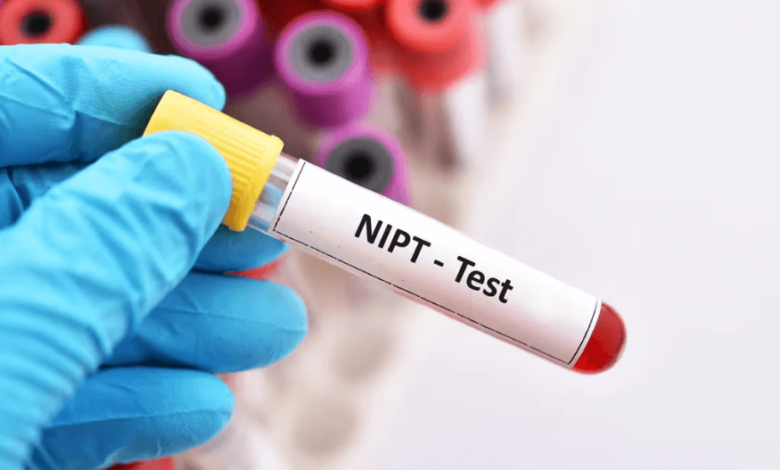8 Things You Should Know About NIPT: The Non-Invasive Prenatal Test

Though it can sometimes bring uncertainty and concern, particularly regarding the health of your kid, pregnancy is a period of great delight and expectation. Emerging as a breakthrough solution to enable expecting parents to have insight into the health of their baby in the early stages of pregnancy is non-invasive prenatal testing (NIPT). Because of its great accuracy and low danger, this straightforward, non-invasive test is growing popular.
In this blog, we will lead you through eight main points you should know about NIPT, thereby clarifying its operation, advantages, and reasons behind the growing number of parents choosing this test. We will also quickly discuss how choices like NIPT test at home are increasingly convenient than before.
- What Is NIPT and How Does It Work?
A blood test called NIPT looks for several genetic disorders in a growing fetus. The test examines tiny DNA fragments from the baby that float through the mother’s bloodstream. Conditions including Down syndrome (trisomy 21), trisomy 18, and trisomy 13 most often screen for using it. In addition, NIPT can determine the baby’s sex and point out various sex chromosomal defects.
NIPT is highly accurate in part because it detects genetic abnormalities early in pregnancy using cutting-edge genetic testing technologies, including next-generation sequencing (NGS). Usually taken following the tenth week of pregnancy, this test has a detection rate of over 99% for Down syndrome and is quite accurate in spotting chromosomal abnormalities.
See also: The Science Behind Peak Athletic Performance: How Athletes Train for Success
- NIPT Is Non-Invasive, Meaning It’s Safe for Both Mom and Baby
NIPT is absolutely non-invasive, unlike intrusive tests like amniocentesis or chorionic villus sampling (CVS), which pose a modest risk of miscarriage. There is no risk to the child from the test; it just requires a blood sample from the mother. For parents who want to obtain vital information regarding the health of their newborn yet are worried about the safety of their child, this makes it a desirable choice.
For women who want to avoid the hazards connected with invasive prenatal tests but yet want a reliable screening method for genetic diseases, NIPT is perfect because of its non-invasive character.
- NIPT Is Available Early in Pregnancy
One of the main benefits of NIPT is that it may be done as early as the tenth week of pregnancy, so enabling parents to obtain vital information about their unborn child far sooner than with conventional tests like the first-trimester combination screening. Early discovery gives parents more time to decide on the pregnancy, including any follow-up tests or birth preparation.
Early testing can also give parents who worry about possible complications—especially those with a family history of genetic disorders—peace of mind.
- Accuracy of the NIPT Test
Particularly in regard to Down syndrome screening, NIPT is well-known for its remarkable accuracy. For Down syndrome, the test boasts a sensitivity rate of over 99%, far greater than conventional screening techniques such as the first-trimester blood test and ultrasonic scan.
Other chromosomal defects as well, like trisomy 18 and trisomy 13, are covered by accuracy. NIPT is a screening test rather than a diagnostic test, though. Although it is quite accurate, false positives and false negatives might happen, so if a positive result comes back, additional diagnostics are advised.
- Convenience of NIPT Test at Home
Rising at-home testing in recent years has made it increasingly simpler for expecting women to obtain NIPT. Many businesses today provide the ease of a NIPT test at home, whereby a blood sample can be taken in the comfort of your own house and subsequently forwarded to a lab for examination. This provides more freedom and comfort than a trip to the clinic or hospital, therefore eliminating the necessity for such.
Women who might not be able to quickly contact a healthcare provider or just want the ease of completing the test privately would find great benefits from at-home NIPT exams. Modern pregnancies find NIPT tests at home a popular option since they offer the same degree of accuracy as an in-office test.
- NIPT Can Identify the Baby’s Gender
NIPT can identify the baby’s sex in addition to looking for genetic disorders since it can find Y-chromosome DNA in the mother’s blood. Many parents find this highly accurate approach to determining whether they are expecting a boy or a girl fascinating and useful as they get ready for the birth of their child.
Though gender reveals have become a regular feature of the prenatal trip for many couples, some parents may decide to keep this knowledge hidden. NIPT offers a consistent and early way to know regardless of when or how you decide to disclose the gender of the baby.
- NIPT is Not Just for Women Over 35
NIPT is not confined to older mothers, even if women over 35 are more likely to have a child with chromosomal disorders. Since it provides a safe, accurate, and non-invasive means to screen for genetic diseases, it is actually becoming more and more popular among women of all ages.
Because of its accuracy and early detection features, even women without known risk factors for chromosomal abnormalities could decide on NIPT. Women who just want peace of mind or those with a family history of some genetic diseases, for example, may choose NIPT regardless of their age.
- Dubai STI Testing and Prenatal Care
Even if NIPT offers vital information about genetic disorders in pregnancy, other elements of prenatal care should also be taken into account. For example, know the value of thorough sexual health checks throughout pregnancy whether you intend to visit Dubai or live there. For example, Dubai STIs are crucial to guarantee that expecting women are free from sexually transmitted diseases (STIs) that might compromise the pregnancy.
The best potential treatment for the mother and the infant depends on both NIPT and STIs; hence, they are both vital. Early identification of illnesses and genetic defects will enable doctors to be ready for any prospective issues, thereby ensuring that the mother and child stay as healthy as they might be.
The Final Words
For expectant mothers who wish to have early, non-invasive knowledge about the condition of their unborn child, NIPT is a priceless tool. This ground-breaking test is revolutionizing prenatal care, from its great accuracy in identifying genetic disorders to its simplicity with choices like the NIPT test at home. See your healthcare practitioner to go over your choices and learn the possible advantages and drawbacks of the NIPT test if you are pregnant and considering it.




